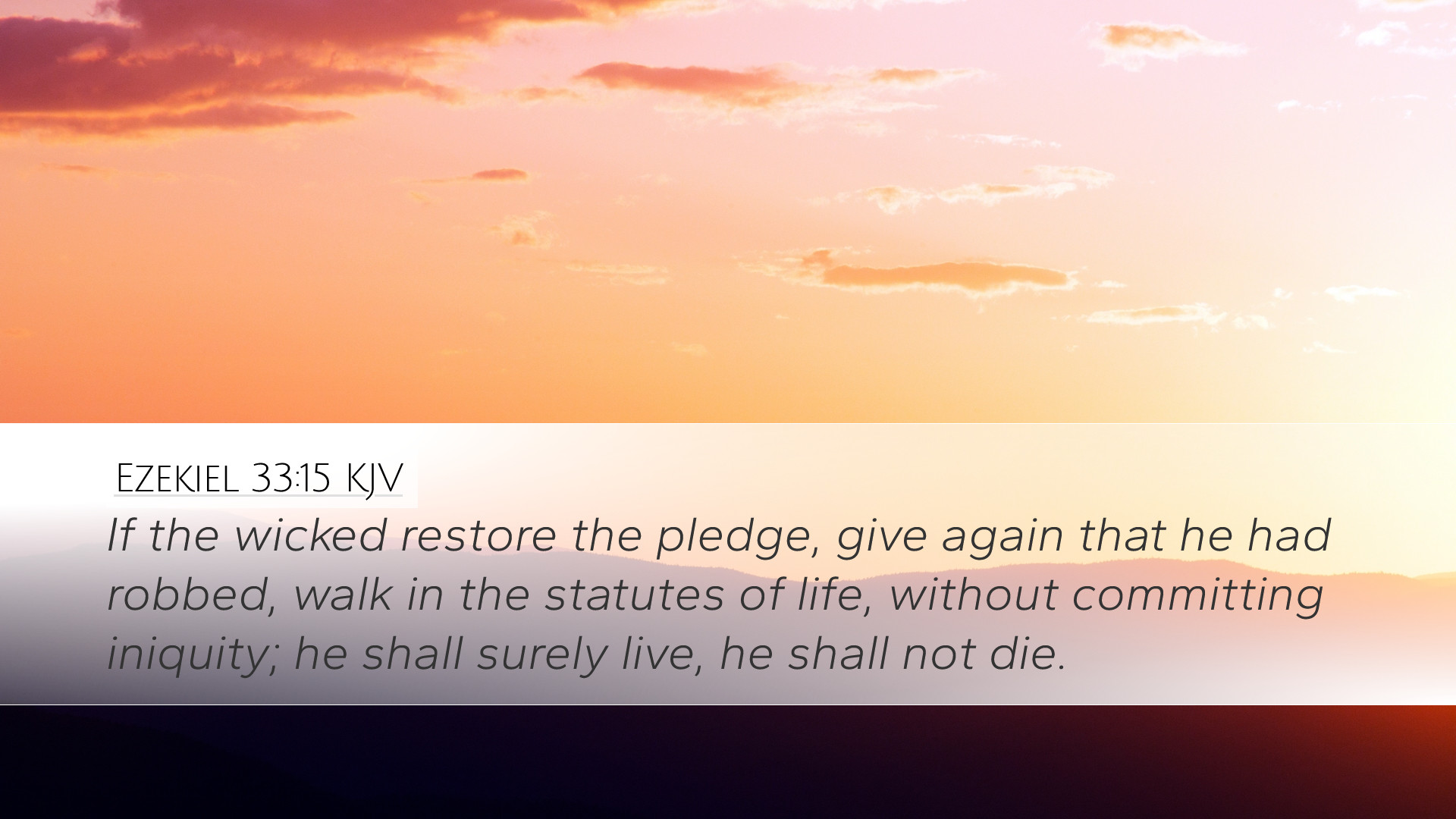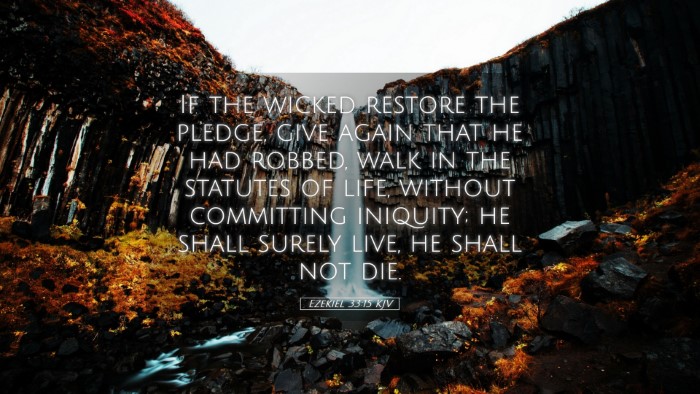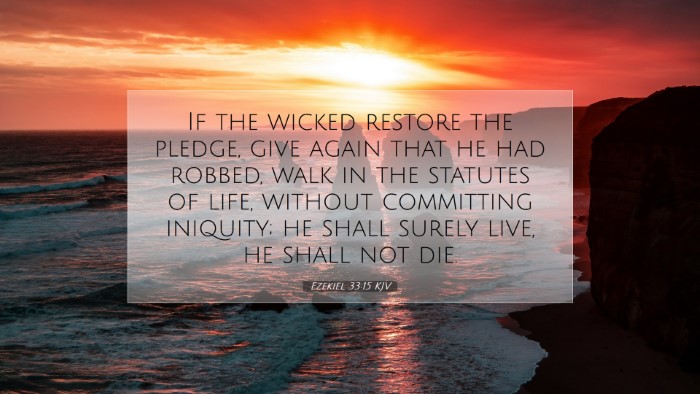Commentary on Ezekiel 33:15
Ezekiel 33:15 states: "If the wicked restore the pledge, give again that he had robbed, walk in the statutes of life, without committing iniquity; he shall surely live, he shall not die."
Contextual Overview
This verse emerges from a section of the book of Ezekiel that emphasizes God's call to repentance and the conditions for life versus death in spiritual terms. The prophet Ezekiel, who serves as a watchman for Israel, delineates the pathways of both wickedness and righteousness, highlighting the transformative power of repentance and restitution.
Theological Significance
At its core, Ezekiel 33:15 illustrates the merciful nature of God who desires redemption over judgment. It signifies that restoration and obedience are critical for the wicked, stressing that a change of heart can lead to reconciliation with God.
Key Phrases Explained
- Restore the pledge: This signifies the act of returning what has been wrongfully taken, emphasizing the necessity for reparation in the process of genuine repentance.
- Walk in the statutes of life: This denotes adherence to God's commandments and lifestyle that aligns with His will, characterized by holiness and uprightness.
- Without committing iniquity: The expectation of abandoning sinful behaviors in favor of righteous living, a theme echoed throughout Scripture.
- He shall surely live: A reaffirmation of the promise of life as a result of repentance, demonstrating God's desire for humanity to thrive spiritually.
Insights from Public Domain Commentaries
Matthew Henry's Commentary
Henry emphasizes that this verse reflects profound mercy from God, showing that He is not willing for the wicked to perish, but rather that they return and live. He notes that the requirement of restitution implies a tangible expression of repentance and a turning away from past sins. Henry also points out the contrast between the fate of the unrepentant and the hopeful promise extended to those who genuinely seek to turn from their wickedness.
Albert Barnes' Notes
Barnes discusses the conditions laid out in the verse as a formula for spiritual life. He argues that restoring the pledge symbolizes a heart that is ready to make amends for past injustices. Barnes highlights that the divine assurance that "he shall surely live" is contingent upon the individual's active pursuit of righteousness. He insists that this illustrates God's justice, which balances His mercy with the expectation of human responsibility in the matter of salvation.
Adam Clarke's Commentary
Clarke provides a comprehensive analysis of the significance of restitution, noting that it is intrinsic to the nature of true repentance. He points out that the restoration's moral and spiritual implications extend beyond mere legality; it requires a heartfelt change. Clarke reinforces the notion that life in God’s eyes results from both faith and works—belief must manifest in actions that conform to God's decrees.
Practical Applications
- Restitution as a Form of Repentance: The call to restore what has been taken fosters an understanding that repentance is not merely an internal state but should result in action that right the wrongs one has committed.
- Deciding to Walk in Obedience: Believers are encouraged to commit themselves to living according to God's statutes, with the assurance that such a life leads to spiritual vitality.
- God’s Justice and Mercy: Recognizing the balance between God’s desire for justice and His mercy can inspire believers to reflect on their relationship with sin and righteousness.
Conclusion
Ezekiel 33:15 serves as a powerful reminder of God’s redemptive purposes. It speaks to both the seriousness of sin and the extraordinary grace available through repentance and works of righteousness. The insights from respected commentators highlight the enduring relevance of these themes, inviting pastors, students, and scholars to delve deeper into the implications of this vital verse. Ultimately, it affirms the call to all believers to engage in a transformative journey towards righteousness and life, grounded in the character of our merciful God.


